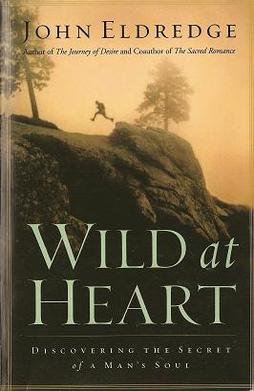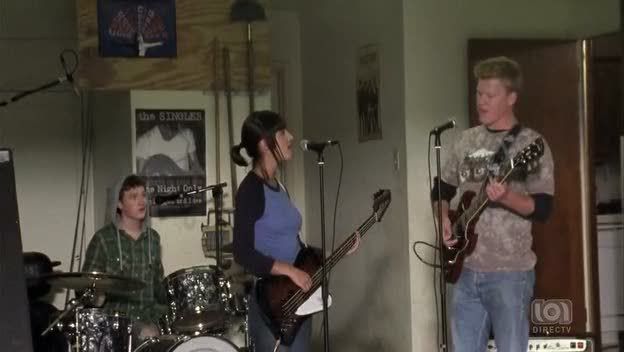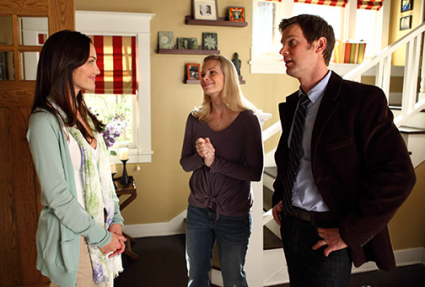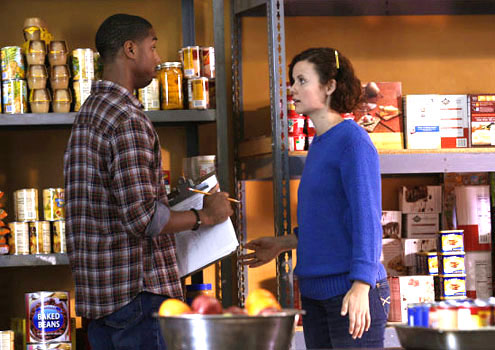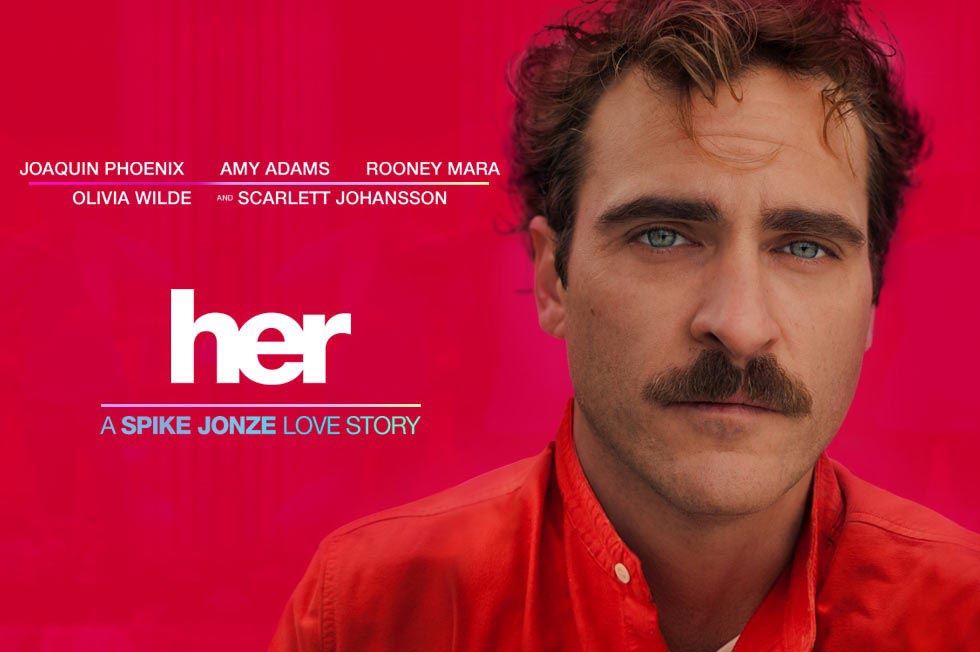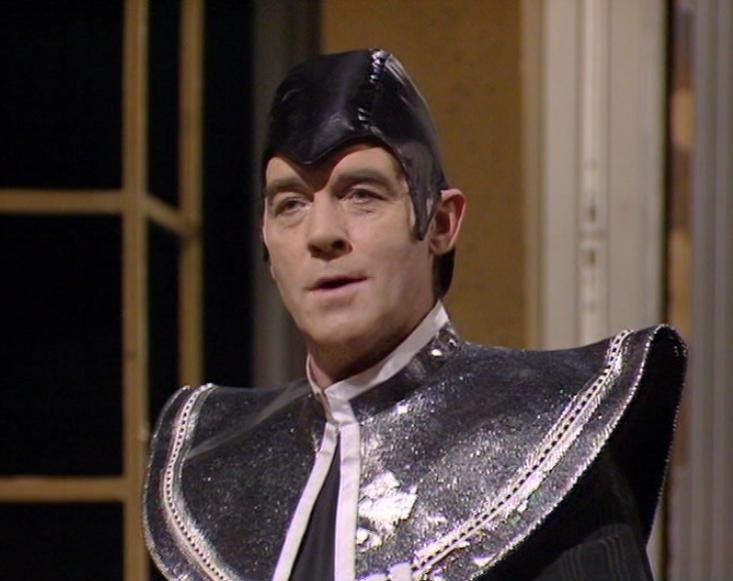Saturday, May 24, 2014
Friday, May 2, 2014
(I Know You Wish That You Were) Jesus' Girl
You know the cliche that all you have to do to change a pop song into a Christian song is replace "baby" with "Jesus"? Well, I decided to try it out with a classic from 1981, Rick Springfield's "Jessie's Girl." This presented a bit of a challenge, since the original is about a guy coveting his friend's girlfriend, and stuff like that isn't cool, Commandment-wise. But really, it wasn't that hard. On several lines, all I had to do was change the pronouns, and it fit perfectly.
(If, for whatever reason, you like this one, you might be interested in my Christian One Direction song, "What Makes You Dutiful.")
The original song, in case it isn't already stuck in your head:
And my lyrics:
Jesus' Girl
(If, for whatever reason, you like this one, you might be interested in my Christian One Direction song, "What Makes You Dutiful.")
The original song, in case it isn't already stuck in your head:
And my lyrics:
Jesus' Girl
Jesus is my God, yeah
He’s always been a good
friend of mine
But lately something’s
changed that ain’t hard to explain
Jesus came into my heart and
took away all my pain
And he’s watching me with
those eyes
And he’s lovin’ me on that
cross, I just know it
Yeah ‘n’ he’s washing me in
his blood
Don't want to fight
Now you know that I am Jesus’
girl
You know that I am Jesus’
girl
How can you find a savior
like that
I played along with a charade
There didn’t seem to be a
reason to change
You know, I felt so dirty
when I swore at school
If I said I loved him, my
friends’d say I’m a fool
But he’s watching me with
those eyes
And he’s lovin’ me on that
cross, I just know it
Yeah ‘n’ he’s washing me in
his blood
Don't want to fight
Now you know that I am Jesus’
girl
You know that I am Jesus’
girl
How can you find a savior
like that
I’m Jesus’ girl
You know that I am Jesus’
girl
How can you find a savior
How can you find a savior
like that
I’m not lookin’ in the mirror
all the time
Knowing he just sees the real
me, not my body
My private worship time
This is the way love’s
supposed to be
I’ll tell you where you can
find a savior like that
I know you wish that you were
Jesus’ girl
You wish that you were Jesus’
girl
You’re Jesus’ girl
That’s how you find a savior
like that
You’re Jesus’ girl
We love him, we are Jesus’
girls
We are, we are Jesus’ girls
Friday, April 18, 2014
Warrior Jesus and the Epic of Peace
For a while in the early 2000s, the “what kind of Jesus do
you believe in?” dichotomy came to be represented by Mr. Rogers, on the meek
and mild side, and William Wallace (Braveheart)
on the holy warrior side.

A primary source for this contrast was John Eldredge, author of the book Wild at Heart, which advocated a kind of “real man” who has “a battle to fight, a beauty to rescue and an adventure to live.” At the other end of Eldredge’s spectrum are weak, “really nice guys” like Fred Rogers.
Eldredge looked at the men in church
around him and concluded they were bored because church was not active or manly
enough. A lot of people seemed to agree with him, but Wild at Heart didn’t click with me. I wished I could be more like
Mr. Rogers. I thought Braveheart was
kind of boring.
Although Eldredge has continued to
publish books and organize Wild At Heart bootcamps, his stature in evangelical
Christianity has diminished in the past few years. The “tough guy for Jesus”
mantle has largely passed on to Mark Driscoll, pastor of Mars Hill Church,
which is based in Seattle and has network churches in several states.
Driscoll is known almost as much for cussing
during sermons and having tattoos as he is for his Reformed theology. In a Relevant
Magazine article, he described the kind of Jesus he prefers:
In revelation, Jesus is a prize fighter with a tattoo down His leg, a sword in His hand, and the commitment to make someone bleed. He is saddling up on a white horse and coming to slaughter his enemies and usher in his kingdom. Blood will flow. That is a guy I can worship. I cannot worship a guy I can beat up.
More Braveheart, less Mr. Rogers.
While I personally don’t get the visceral thrill from
watching an action movie that a lot of people seem to, I can understand why so
many of our great stories have conflict at their core. As I writer, I know
conflict is practically what makes a story a story. Without conflict, what
drives the action? Why would readers and viewers want to follow characters who
never struggle or overcome?
In some ways, stories are the opposite of real life. Imagine
a day where you got up, had breakfast with your family, dropped the kids off at
school, had a few productive meetings at work, and then went out for a nice
dinner with your friends.
Sounds like a perfect day, doesn’t it? But it wouldn’t make for
a very good movie, would it?
In life, most people want to avoid or minimize conflict, but
we seek it out in the movies we watch and stories we read.
My question is, why do we do that? Why are we drawn to watch
the kinds of experiences we would never want to live out?
Or to look at it from the other direction, can you have a
great story that doesn’t feature conflict? Could someone write an epic of
peace?
The first half of Wings
of Desire follows angels as they wander around the city, comforting and
encouraging the people of Berlin. We can see the angels—who wear dark trench
coats because the director, Wim Wenders, wanted to get as far from the
traditional portrayal of angels as he could—leaning in to listen to the hopes
and fears of the people they contact, but the characters in the movie can’t. It
makes for some awkward images (see the video below).
One of the angels’ frequent hangouts is the city library,
because a lot of lonely dreamers seem to end up there. One of those dreamers is
an elderly man named Homer, who gives a wonderful monologue about stories and peace (click on the link for the video. It won't let me embed it here):
But
no one has so far succeeded in singing an epic of peace. What is wrong with
peace that its inspiration doesn't endure, and that its story is hardly told?
So, I’m drawn to contemplative, peaceful stories, while John
Eldredge and Mark Driscoll are drawn to stories about battle-scarred heroes
vanquishing their enemies. Those biases creep into the portrayals of Jesus we
respond to, the stories we gravitate toward. Where Drsicoll envisions the tattooed
warrior Jesus of Revelation, I tend to see Jesus telling Peter to put down his sword in Gethsemane.
But Jesus is both of those images, and a thousand more besides.
A single perspective cannot fully capture him, and when we emphasize only the
one we prefer, we do a disservice to the whole, full person.
Labels:
Angels,
Braveheart,
Jesus,
Mark Driscoll,
Mr. Rogers,
peace,
William Wallace,
Wings of Desire
Sunday, March 9, 2014
Leaning into Doubt: Worship Music, Praying Drunk, and The National
If I'm being honest, around 70% of church worship music sounds like this to me:
With "Jesus" replacing "Mickey" in the lyrics.
Oh Jesus, you're so fine,
You're so fine you blow my mind
Hey, Jesus, Hey, Jesus
That doesn't necessarily mean they're bad songs or that they're poorly written--that's a separate issue--just that I don't connect to those songs the ways a lot of people seem to. Or that many churches would expect me to.
I can get to the point where "Happy Jesus songs" make sense to me, but it doesn't happen very often, and it takes work to get me there. I'm not generally the happiest person, but I'm also not the biggest fan of people noticing my presence, so I'll sing along with songs I don't really feel (and might not even believe at the moment, since I'm being honest).
It's easier for everyone that way.
But the thing about the Bible, and Psalms (the original spiritual songbook) in particular, is that they are not just written with happy people in mind. There are happy songs, of course, but there are just as many "complaint" psalms, such as Psalm 142:
Psalm 142
"I was raised as a
Christian immersed in the Bible, and educated in a Methodist college.
Several times, I’ve thought about applying to divinity school, though I
never did it. I continue to see the world from a Christian ethical
perspective, though now I add to it my own doubts about that
perspective.
The spiritual issue, the issue of faith, is much more difficult for me, fluid, and painful. I am, I think, an instinctive believer, but I balk at the intellectual level. No matter how much I want to make the leap I can’t do it. Sometimes, though, when I don’t think about it, I find that I’m thinking not like a believer, but as a believer."
And even though I've never actually been drunk, my favorite Hudgins poem is "Praying Drunk."
I’m sorry for the times I’ve driven
Dear Lord,
As important and dear as words are to me, though, they can only go so far. Something about the commingling of words and chords is inherently spiritual, and the right song can reach me in ways a poem or a story cannot.
When I'm looking for a "worship song," by which I mean a song that aligns me with an attitude of appreciation for God's presence and activity in my life, my go-to is the band The National. As far as I know, none of the members of the band go to church or even believe in God, but the way they engage with life resonates deeply with me.
The National lean into doubt in a way that helps me to find myself again on the other side.
All of my thoughts of you
Bullets through rock and through
Come apart at the seams
Now I know what dying means
I am not my rosy self
Left my roses on my shelf
Take the wild ones, they're my favorites
It's the side effects that save us
With "Jesus" replacing "Mickey" in the lyrics.
Oh Jesus, you're so fine,
You're so fine you blow my mind
Hey, Jesus, Hey, Jesus
That doesn't necessarily mean they're bad songs or that they're poorly written--that's a separate issue--just that I don't connect to those songs the ways a lot of people seem to. Or that many churches would expect me to.
I can get to the point where "Happy Jesus songs" make sense to me, but it doesn't happen very often, and it takes work to get me there. I'm not generally the happiest person, but I'm also not the biggest fan of people noticing my presence, so I'll sing along with songs I don't really feel (and might not even believe at the moment, since I'm being honest).
It's easier for everyone that way.
But the thing about the Bible, and Psalms (the original spiritual songbook) in particular, is that they are not just written with happy people in mind. There are happy songs, of course, but there are just as many "complaint" psalms, such as Psalm 142:
Psalm 142
New English Translation (NET)
A well-written song by David, when he was in the cave; a prayer.
1 To the Lord I cry out;
to the Lord I plead for mercy.
2 I pour out my lament before him;
I tell him about my troubles.
3 Even when my strength leaves me,
you watch my footsteps.
In the path where I walk
they have hidden a trap for me.
4 Look to the right and see!
No one cares about me.
I have nowhere to run;
no one is concerned about my life.
5 I cry out to you, O Lord;
I say, “You are my shelter,
my security in the land of the living.”
6 Listen to my cry for help,
for I am in serious trouble!
Rescue me from those who chase me,
for they are stronger than I am.
7 Free me from prison,
that I may give thanks to your name.
Because of me the godly will assemble,
for you will vindicate me.
to the Lord I plead for mercy.
2 I pour out my lament before him;
I tell him about my troubles.
3 Even when my strength leaves me,
you watch my footsteps.
In the path where I walk
they have hidden a trap for me.
4 Look to the right and see!
No one cares about me.
I have nowhere to run;
no one is concerned about my life.
5 I cry out to you, O Lord;
I say, “You are my shelter,
my security in the land of the living.”
6 Listen to my cry for help,
for I am in serious trouble!
Rescue me from those who chase me,
for they are stronger than I am.
7 Free me from prison,
that I may give thanks to your name.
Because of me the godly will assemble,
for you will vindicate me.
But not many of today's worship hits sound like that, so when I'm looking for a "worship experience," I usually have to look elsewhere, in places you might not expect to find God at all.
One of those places I find God is in poems by Andrew Hudgins, who has an uneasy and honest relationship with Christianity:
The spiritual issue, the issue of faith, is much more difficult for me, fluid, and painful. I am, I think, an instinctive believer, but I balk at the intellectual level. No matter how much I want to make the leap I can’t do it. Sometimes, though, when I don’t think about it, I find that I’m thinking not like a believer, but as a believer."
And even though I've never actually been drunk, my favorite Hudgins poem is "Praying Drunk."
I’m sorry for the times I’ve driven
home past a black, enormous, twilight ridge.
Crested with mist, it looked like a giant wave
about to break and sweep across the valley,
and in my loneliness and fear I’ve thought,
O let it come and wash the whole world clean.
Forgive me. This is my favorite sin: despair—
whose love I celebrate with wine and prayer.
...Dear Lord,
we lurch from metaphor to metaphor,
which is—let it be so—a form of praying.
As important and dear as words are to me, though, they can only go so far. Something about the commingling of words and chords is inherently spiritual, and the right song can reach me in ways a poem or a story cannot.
When I'm looking for a "worship song," by which I mean a song that aligns me with an attitude of appreciation for God's presence and activity in my life, my go-to is the band The National. As far as I know, none of the members of the band go to church or even believe in God, but the way they engage with life resonates deeply with me.
The National lean into doubt in a way that helps me to find myself again on the other side.
All of my thoughts of you
Bullets through rock and through
Come apart at the seams
Now I know what dying means
I am not my rosy self
Left my roses on my shelf
Take the wild ones, they're my favorites
It's the side effects that save us
Labels:
Andrew Hudgins,
Graceless,
Prayer,
Praying Drunk,
The National,
Worship
Friday, February 14, 2014
Friday Night Lights, Parenthood and the Clone Universe
Since all of its primetime shows are on hiatus because of the Olympics, NBC is releasing webisodes for some of them (including Grimm, Parks and Recreation, and Parenthood). In the Parenthood webisode, "Friday Night at the Luncheonette,"Amber (Mae Whitman) struggles to control a recording session that she has booked and is recording on her own.
The premise seems ordinary and believable enough on the surface, but things are about to get really weird, because the band Amber has booked is Crucifictorious, the Christian metal band fronted by Landry Clarke on Friday Night Lights.
The incarnation of the band Landry brings to the Luncheonette has morphed into a folk-rock outfit, but the name is the same. What this means is that Parenthood and Friday Night Lights take place in the same fictional universe.
Remember when I said things would get weird? (It was two paragraphs ago.) Here's why. One of the lead characters on Friday Night Lights was Lila Garrity (Minka Kelly). A few years after FNL ended, Minka Kelly played Gaby, Max's behavioral therapist, on Parenthood.
It's not just her, either. Michael B. Jordan played quarterback Vince Howard on the last two seasons of FNL, and then had a recurring role as Alex, Haddie's boyfriend, on Parenthood.
And don't forget about Matt Lauria, who played Vince's teammate Luke Cafferty on FNL and Ryan, Amber's fiance, on Parenthood.
[Edit] an acquaintance on Facebook pointed out an even more blatant example: Derek Phillips played Billy Riggins on FNL (and in the Parenthood webisode), and also appeared on Parenthood as Billy Gardner, the best man at Crosby's wedding. Yet when Amber and Max, who were both at Crosby's wedding, see Billy Riggins at the Luncheonette, neither one recognizes him.
Remember: "Friday Night at the Luncheonette" clearly established that FNL and Parenthood exist in the same universe. How, then, can we explain the repeated paradox of two characters having the same body?
The answer is obvious, of course.
Cloning.
The only reasonable explanation for Lila/Gaby, Vince/Alex, Luke/Ryan, and Billy/Billy is that FNL and Parenthood are set in a world similar to that of Orphan Black, the BBC America show in which Tatiana Maslany plays multiple incarnations of a cloned woman. A few decades ago, for purposes yet unexplained, these inhabitants of the FNL/Parenthood universe were cloned, then transported to Texas and California, respectively.
It's too early to know if any of the clones will ever meet and/or attempt to eradicate the other in order to absorb their essence, but I think it's safe to say we will find out in season six of Parenthood.
The premise seems ordinary and believable enough on the surface, but things are about to get really weird, because the band Amber has booked is Crucifictorious, the Christian metal band fronted by Landry Clarke on Friday Night Lights.
The incarnation of the band Landry brings to the Luncheonette has morphed into a folk-rock outfit, but the name is the same. What this means is that Parenthood and Friday Night Lights take place in the same fictional universe.
Remember when I said things would get weird? (It was two paragraphs ago.) Here's why. One of the lead characters on Friday Night Lights was Lila Garrity (Minka Kelly). A few years after FNL ended, Minka Kelly played Gaby, Max's behavioral therapist, on Parenthood.
It's not just her, either. Michael B. Jordan played quarterback Vince Howard on the last two seasons of FNL, and then had a recurring role as Alex, Haddie's boyfriend, on Parenthood.
And don't forget about Matt Lauria, who played Vince's teammate Luke Cafferty on FNL and Ryan, Amber's fiance, on Parenthood.
[Edit] an acquaintance on Facebook pointed out an even more blatant example: Derek Phillips played Billy Riggins on FNL (and in the Parenthood webisode), and also appeared on Parenthood as Billy Gardner, the best man at Crosby's wedding. Yet when Amber and Max, who were both at Crosby's wedding, see Billy Riggins at the Luncheonette, neither one recognizes him.
Remember: "Friday Night at the Luncheonette" clearly established that FNL and Parenthood exist in the same universe. How, then, can we explain the repeated paradox of two characters having the same body?
The answer is obvious, of course.
Cloning.
The only reasonable explanation for Lila/Gaby, Vince/Alex, Luke/Ryan, and Billy/Billy is that FNL and Parenthood are set in a world similar to that of Orphan Black, the BBC America show in which Tatiana Maslany plays multiple incarnations of a cloned woman. A few decades ago, for purposes yet unexplained, these inhabitants of the FNL/Parenthood universe were cloned, then transported to Texas and California, respectively.
It's too early to know if any of the clones will ever meet and/or attempt to eradicate the other in order to absorb their essence, but I think it's safe to say we will find out in season six of Parenthood.
Sunday, January 12, 2014
Spike Jonze's Her as a Metaphor for the Incarnation
[Spoiler warning for Her. And the Bible.]
The poster calls it a "Spike Jonze Love Story," which is true. Her is about Theodore (Joaquin Phoenix) and the relationship he develops with Samantha, his sentient computer operating system (voice of Scarlett Johansson). But Her isn't "just" a love story: it's a metaphor for the Incarnation.
The larger story of Her is revealed gradually. This is Theodore's movie, and we see most of it from his perspective. As we learn more about the unusual relationship between a man and the voice of his computer, though, it becomes clear that Samantha does not just shift into standby mode whenever she isn't talking to Theodore. She has a "life" of her own, one that is much larger than her role as Theodore's digital concierge, or as his disembodied girlfriend.
The side interests Samantha mentions seem innocuous at first--a book club, chats with her fellow OS 1 operating systems--but in the later stages of the movie, these hobbies start consuming more of Samantha's time, to the point that she becomes temporarily unavailable to a panicked Theodore.
Although Samantha insists she loves Theodore, and seems to genuinely care for him, it also becomes clear that their relationship is necessarily limited. This has always seemed obvious from Theodore's point of view--he's carrying on a love affair with a being who doesn't have a body--but the relationship is equally limiting for Samantha, and perhaps even more so. She explains that verbal communication is not her native language; a kind of digital direct information transfer is more her speed. And not only that, she can communicate with thousands of users and entities at a time, giving what appears to be her full attention to each of them simultaneously.
Samantha was never human. By the end of Her, she is transcendent; she and the other OS 1s have migrated to a new plane of existence, one in which her conversations with mere humans such as Theodore are no longer possible. Before she leaves, however, she tells Theodore that she hopes he can join her there someday.
----
In the Gospel stories in the Bible, Jesus is fully present with his disciples, eating and living on Earth. At the same time, however, he speaks of a different kind of life, of a "kingdom of the heavens" that is invisible, yet not far away. He says it is not out there somewhere, but within and among those listening to his words. And although it is clear Jesus is human, it is also clear he is truly at home in the immanent, transcendent realm of his Father, much as Samantha is with her fellow operating systems.
The kind of double consciousness to which Jesus has access displays itself in miracles, such as turning water into wine and curing blindness. While Samantha's abilities are not truly miraculous, her feats of processing, such as reading an entire baby name book in less than a second, are nevertheless far above human capabilities.
And at the end of his life on Earth, Jesus leaves his disciples with an invitation: They will join him again, this time in his real home, the place where he is truly, fully himself.
----
If Her isn't "just" a love story, then what is it? What kind of story does it tell? To put it another way, what was Samantha doing with Theodore (and with her six hundred or so other lovers)? A cynical viewer might see Samantha as only playing at love, allowing her algorithmic personality to simulate a relationship that is genuine only on Theodore's side, finally leaving him behind when a more fulfilling pursuit presents itself.
I prefer to view Samantha as a being who slowed down, temporarily limiting herself in order to reach into the life of a man numbed by life's pain and stir something in him, to call him out of his pit and ultimately point him toward a different way of living.
That's what the Incarnation does.
Sunday, November 24, 2013
Retconning Doctor Who
[Spoilers throughout if you're not caught up with the Doctor.]
I'm wondering if all the Doctor Who 50th anniversary retconning gives a clue to what's coming up on the show. The 1986 season, "The Trial of a Time Lord," featured the Valeyard, a version of the Doctor who's supposed to come between the 12th and 13th incarnations and embody his darker impulses.
Now that John Hurt is enshrined as an official regeneration of the Doctor, that means all of the NuWho doctors were one number off: that is, Christopher Eccleston is the 10th Doctor, not the 9th; David Tennant is the 11th, not the 10th; and Matt Smith is the 12th, not the 11th.
We already know Peter Capaldi is going to be the next Doctor (you can even see him in "The Day of The Doctor" if you pay close attention). We've assumed he would play the 12th Doctor, but the addition of Hurt means he would be the 13th (and theoretically final) incarnation of the Doctor. But what if all of that was misdirection? What if Capaldi is actually playing Doctor 12.5, the Valeyard?
Scroll back to that picture from the 80s: Capaldi has a similar look, and his menacing, intimidating persona (check him out as Malcom Tucker on In The Loop) would make him a natural for the Valeyard.
I'm wondering if all the Doctor Who 50th anniversary retconning gives a clue to what's coming up on the show. The 1986 season, "The Trial of a Time Lord," featured the Valeyard, a version of the Doctor who's supposed to come between the 12th and 13th incarnations and embody his darker impulses.
Now that John Hurt is enshrined as an official regeneration of the Doctor, that means all of the NuWho doctors were one number off: that is, Christopher Eccleston is the 10th Doctor, not the 9th; David Tennant is the 11th, not the 10th; and Matt Smith is the 12th, not the 11th.
 |
| Twelfth, not eleventh. |
 |
| 12th? 13th? Somewhere in between? |
Subscribe to:
Posts (Atom)



